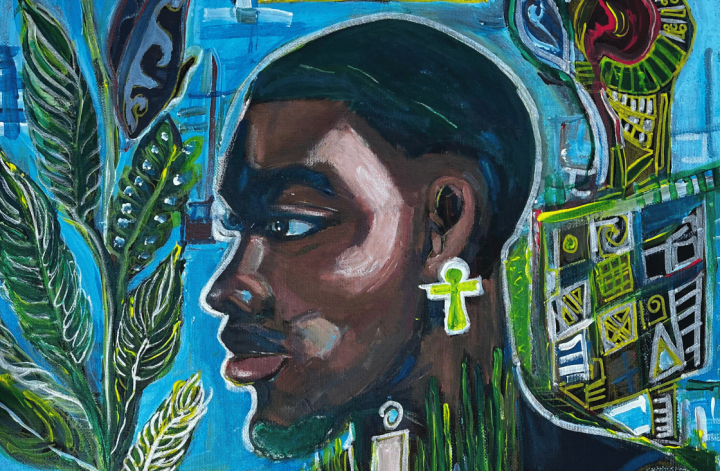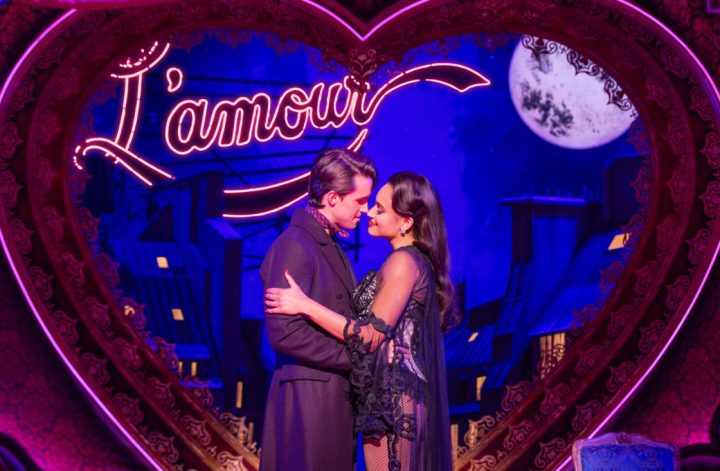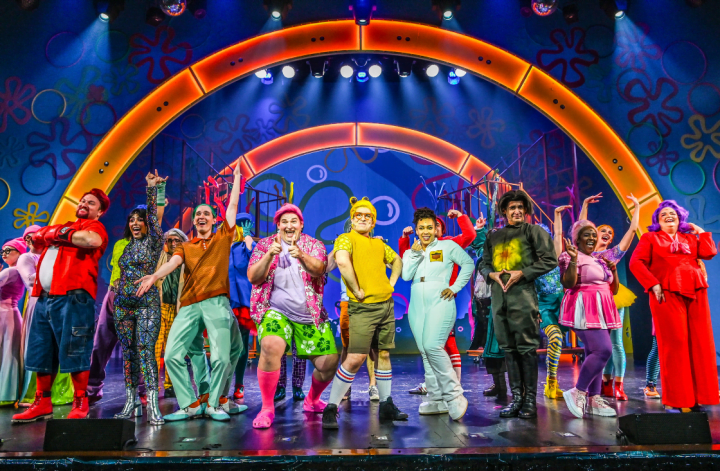An incredible ride awaits anyone who chooses to attend Rotterdam at Island City Stage. This instantly engaging play by Jon Brittain has plenty of comedic moments, yet also tells an insightful, dramatic story likely to stick with you long after the final scene.
But the basic premise of the play is laid out cleanly in the first. For the past seven years, Alice and Fiona have been living as a lesbian couple in a Dutch city called Rotterdam, abroad from their native England. Until now, this distance has allowed Alice to stay in the closet to her parents, which is the main reason she’s resisted coming home. But just as Alice is finally getting ready to admit that she is not attracted to men, Fiona suddenly announces that “she” feels as if she has always been one.
Over the course of Act 1,which takes place during a single 24 hours leading up to New Years Eve, Fiona announces that she plans to take the name “Adrian,” and wants to be referred to by male pronouns, which I will use to refer to the character henceforth. He then continues the coming out process with his brother, Josh, one of the play’s other characters, as well as with a sweet and funny phone call to their parents.
But while Adrian’s family takes the news more or less in stride— Josh later remarks that having a trans son simply gives their parents “a whole new set of marches to go on,” — Alice has somewhat more difficulty accepting this development.
Robert Koutras, Autumn Kioti, Suzanne Ankrum photo by Matthew Tippins
Though Alice attempts to repress her doubts and support her partner, it’s also easy for us as an audience to understand her hesitancy. For Adrian, beginning to transition is a joyous process of becoming his true self; yet in doing so, he is also effectively doing away with the woman that Alice knows and loves.
Making things more complicated and compelling, when Alice first escaped to Rotterdam, she did so while in a relationship with Josh, still lying to herself about her sexuality. The unique perspective on gender and attraction that this experience affords him is also something that Brittain uses to highly interesting and eventually poetic effect.
And then there’s the conflict represented by the play’s fourth character, Leilani, a young Dutch colleague of Alice’s who is self-assured in her lesbian identity and has no qualms about expressing it. And when Alice decides to decompress from her Adrian ordeal by joining Leilani for a drink, it’s clear that the flying sparks are from more than just their celebratory fireworks.
Abbie Fricke and Suzanne Ankrum photo by Matthew Tippins
While it’s somewhat easy to predict where that particular plot thread is headed and Act 1 felt a little overstretched as a whole, a riveting second act traverses plenty of less familiar territory. Now that Adrian has started hormones and begun living openly as a man, he must now grapple with society’s reaction to his transition. Meanwhile, Alice finds herself struggling to understand Adrian’s impatience with others’ inability to instantly grasp his identity, and still stumbling over the correct names and pronouns.
Meanwhile, though Josh seems to be better at grasping the new situation and their relationship seems to be more harmonious now that Josh can relate to his younger sibling as a “bro”, Adrian is still all too aware that Josh looks at him and sees a little sister, one of many poignant moments of a memorable barroom interaction between them.
When Alice and Adrian’s disconnection finally reaches an apex, both have moments of heartbreak, but it’s Adrian’s breakdown, in which he visibly attempts to reject the identity he has worked so hard to build in the hopes of regaining Alice’s affection, that truly scorches the soul.
Robert Koutras and Autumn Kioti photo by Matthew Tippins
Autumn Kioti Horne, an actor who identifies as non-binary, gives a stunning performance in their role and especially in that excruciating moment, ably inhabiting both Fiona’s butch but softer pre-dimension self and Adrian’s unmistakably masculine energy. Though theirs is thus the most remarkable performance of the four, Suzanne Ankrum also does an incredible job at portraying the neurotic but lovable Alice and her own changing identity. Robert Koutras and Abbie Fricke provide excellent supporting work as Josh and Leilani, and the direction of Michael Leeds helps convey the complex relationships between all four.
Though there were no shortage of witty laugh lines in this play, it’s also worth noting that there was more than one time during the performance that I found myself on the verge of tears, for not the first time during that weekend of theatre-going. In fact, in being asked to empathize with so many different characters, in so many different situations, I for a second found myself wondering if being a chronicler of theatre isn’t merely being a keeper of all the world’s pain.
Suzanne Ankrum and Autumn Kioti photo by Matthew Tippins




